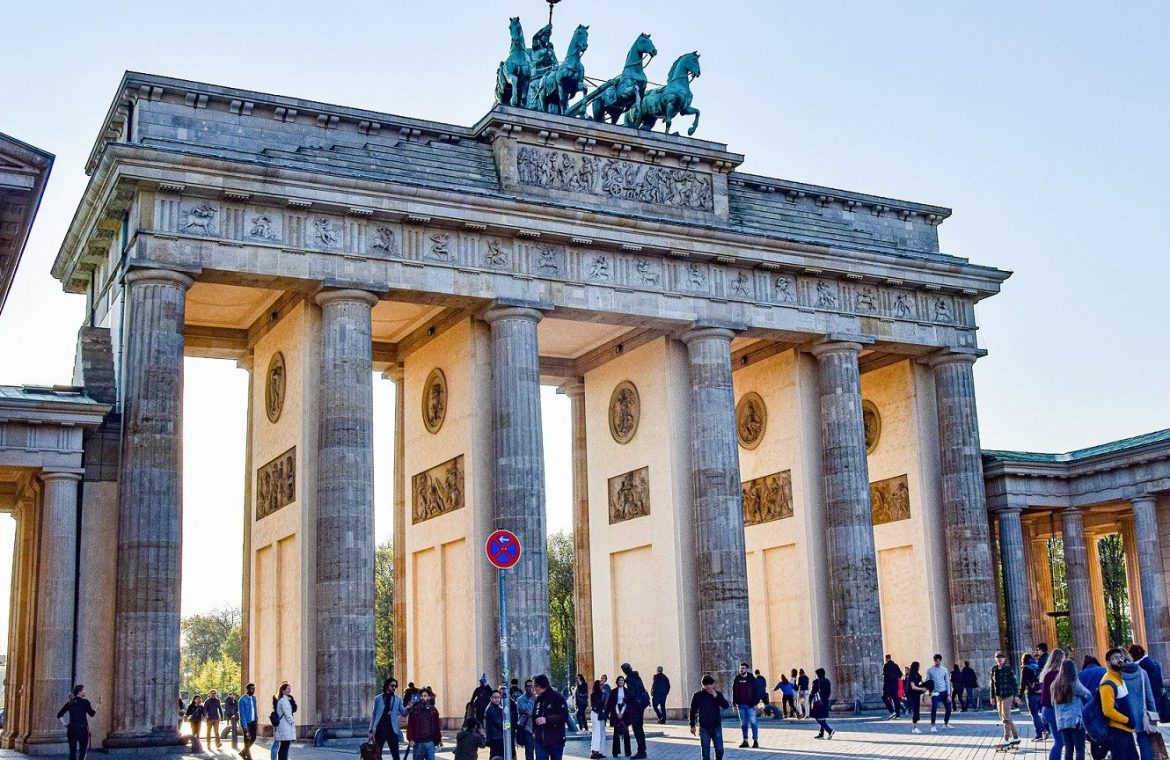“This is a good day for us,” museum director Felix Kremer rejoices. His Kunstblast in Düsseldorf reopened its doors to visitors on March 10. However, pre-registration and online purchase of the ticket with contact details are required. Maintaining distance and FFP2 mask is mandatory.
The response was tremendous. The service the museum uses to sell tickets has been overburdened for hours. Except that the opening of the artist’s birthday exhibition the so-called Zero Heinz Mack group, which turned 90 years old, on March 8, was held online. The federal government’s new opening regulations came too late, and everything was digitally prepared.
But from the second week of March, things are blossoming. In addition to Mack, the Kunstpalast also hosts the exhibition “Caspar David Friedrich and Duesseldorf Romantics”, and the long-running exhibition “Andy Warhol Now” at the Ludwig Museum in Cologne – traditional and standard. Pure pleasure from communicating with art. In addition to museums, art galleries also open their doors in both the cities of the Greater Rhine.
Cultural enjoyment under many conditions
However, most museums and galleries in Germany need more time to hold new exhibitions and reopen to the public. Museum scientists assure that after four months of complete closure, it is impossible to move the hoof within 24 hours. Ventilation systems and other devices in museums require prior and thorough health checks.
From March 16, the Bundeskunsthalle in Bonn offers the public the possibility to take an analog tour of the galleries in the building. Paintings by painter Max Klinger can be viewed until early April, and is an autobiographical exhibition dedicated to the great political thinker and philosopher Hanna Arendt until May 16. Until July 25, you can see the exhibition “Paintings of the Atlas of Mnemocene”, dedicated to the famous art historian Abbey Warburg.
– Culture and art are not only soothing to the soul, but they also serve to educate and inspire, and aid in personal orientation and inner life – says Eva Krause, Art Director at Bundeskunsthalle. – Visiting galleries is a reasonable alternative to walking and the digital world: they are safe and enriching.
New contracts with artists are needed
Federal Commissioner for Culture (there is no Federal Ministry of Culture in Germany) Monica Groetiers expressed her satisfaction that the urgent appeals of the German government, Chancellor Merkel and epidemiologists advising politicians were successful. I am glad that a quick restart is now possible under certain conditions for libraries, but also for museums, galleries and monuments. There are also prospects for opening cinemas, theaters, concert halls, and opera houses.
But it takes time. Fans of music and opera will have to be patient until March 22nd. It is impossible to resume concerts and performances overnight. You have to prepare them, and in many cases sign new contracts or annexes.
Germany is a mosaic of cultural policy
“Germany needs culture, especially in these times,” Grutters stressed in a recent statement about re-launching cultural institutions – because they create “a space for debate, democracy, compassion and energy”. It expects the provinces to implement the culture progress plan very quickly. However, there is a hitch: Germany is a federal state, and cultural institutions are usually the responsibility of federal states and local governments. Hence, when it comes to introducing cultural regulations, Germany is like a colorful mosaic.
In Berlin and Brandenburg, you can visit museums, galleries, planetariums and libraries from March 9 (after registering online). The same applies to Bremen, Hamburg and Nord Rhein-Westfalen. In Lower Saxony, the opening of cultural institutions depends on the infection rates in the regions. It should be less than 50 cases per 100,000. Residing in the past seven days.
In Bavaria, zoos, botanical gardens and memorials may resume work, but not museums, with an incidence rate of less than 50.
In the state of Baden-Württemberg, tattoo and piercing studios are also permitted to open. Employees and customers must wear medical masks or take a negative rapid test for coronavirus.
‘Culture is not a luxury’
The German Government Commissioner for Culture, Monica Groetiers, continues to strive for the rapid opening up of all other cultural institutions. – Not only because the cultural and creative industries are an important economic factor, but also because culture is not a luxury that can only be provided in the good times – explains CDU politician.
Klaus Lederer, president of the State Ministers of Culture conferences, has a similar opinion: – It is impossible to reasonably explain why we are talking about the opening of DIY stores, but not theaters and operas.
By the way, anyone from abroad who wants to attend an interesting show or exhibition in Germany should be prepared to be inconvenienced. Many federal states still have restrictions on people coming from abroad.
And the hundreds of thousands of tourists who visited the famous Bavarian castle Neuschwanstein before the pandemic? They will have to be more patient. The iconic attraction will remain closed until 2023 – not because of the coronavirus, but because of a renewal.

“Food practitioner. Music junkie. Avid troublemaker. Hipster-friendly creator. Social media lover. Wannabe pop culture fanatic.”







